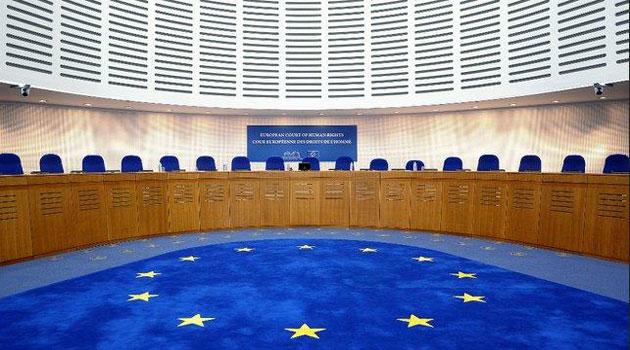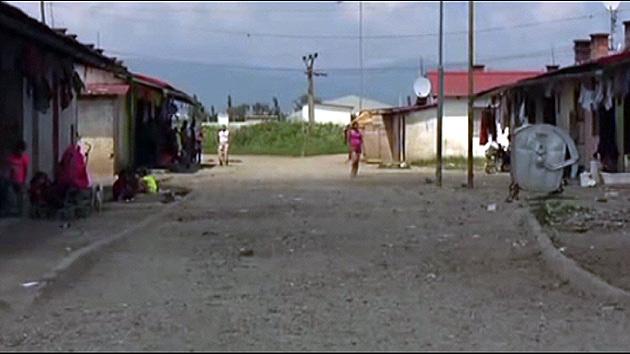European Court of Human Rights finds Slovakia failed to properly investigate police brutality against Romani children

The European Court for Human Rights in Strasbourg, France (ECtHR) has handed down a decision in a case of police using force against three Romani minors in a police vehicle while transporting them to a police station in 2009 in Košice, Slovakia. According to the court, the responsible authorities did not investigate the allegations sufficiently and thereby have violated their international law obligations in the human rights area.
The incident in question preceded further use of force by police against those same children and three other Romani boys at the Košice-Jih police station. “I am glad my son and the other boys have finally seen justice after so many years,” the father of one of the injured parties said in response to the judgment.
In March 2009, one of the Romani boys was arrested by members of the police force and, while being transported in a police vehicle, one officer used his hand to strike the boy in the face and demand the names and addresses of the other boys suspected of committing illegal activity with him. After two other alleged accomplices were arrested, the officer is said to have struck all three boys in the face during their transport to the police station.
“It is important that justice has won the day in the case of these three Romani boys. Unfortunately, they had to go all the way to Strasbourg for it. It is essential that the criminal justice authorities, including the courts, when reviewing racially-motivated cases of police brutality, proceed as consistently as possible, and this judgment from the European Court is sending them that message,” said Vanda Durbáková, the legal representative for the injured parties.
Free legal aid to the injured parties during the criminal proceeding against the officer and subsequent proceedings before the Constitutional Court and the ECtHR was provided by the Center for Civil and Human Rights. “This is yet another judgment from the European Court in recent years referencing the serious deficiencies in the investigations of police brutality in Slovakia, including investigations into possible racial motivation. It is apparent that these deficiencies are not isolated incidents, and in our experience, they persist. The responsible state authorities to this day have yet to adopt effective measures to eliminate these deficiencies,” said Štefan Ivanco, program coordinator at the Center for Civil and Human Rights, in response to the judgment.
All of the injured parties were minors at the time of the incident. The actions inside the police vehicle immediately preceded the incidents that were part of a broadly-publicized case of police brutality against the Romani boys during their detention at the Košice-Jih police station.
Some of the brutality at the station was filmed, but despite that, the prosecution of the officers ended in December 2020 with an acquittal. The Control and Inspection Services Section of the Interior Ministry of the Slovak Republic had opened a criminal investigation in 2009 into the entire matter and charged the officers suspected of committing the crimes.
In 2010, the brutality committed against three of the injured parties during their transport by vehicle to the police station was separated into a criminal proceeding of its own. The officer charged with committing those particular crimes was indicted for abusing the powers of a public official.
In 2011, the District Court for Košice II first rejected the indictment and returned it to the prosecutor for further completion. After the investigation was completed and the indictment filed again, the district court held a trial, then acquitted the officer charged through a verdict handed down in 2015.
In that verdict the court found that what had been committed was not a felony. Appeal of that verdict was rejected by the appellate court as unjustified.
The criminal acquittal in the case, therefore, took effect. The injured parties then attempted to have that acquittal overturned by complaining to the Constitutional Court.
The Slovak Constitutional Court fond the injured parties’ rights had not been violated and rejected their complaint in November 2018. In the meantime, because there were not further venues to approach domestically, the injured parties had complained to the European Court of Human Rights in June 2017.
The injured parties claimed that their rights guaranteed by the Convention for the Protection of Human Rights and Fundamental Freedoms had been violated, in particular their right to protection against cruel and inhuman treatment, a component of which is the duty of states and their institutions to conduct effective investigations of such cases. They also sought a declaration that the authorities’ conduct had infringed their right of access to an effective remedy and, in connection with these cases, their right to protection against discrimination.
On 1 April 2021 the ECtHR agreed to hear the complaint in part. The court rejected the Government’s argument that the complaint is inadmissable and ruled that the responsible state authorities had violated the plaintiffs’ right to an effective investigation of the alleged police brutality.
In so doing, the authorities violated the procedural component of the right to protection against inhuman or degrading treatment or punishment under Article 3 of the Convention. The judgment emphasized above all that in cases where racially-motivated police brutality is alleged, the authorities are obligated to adopt all appropriate measures to ascertain whether the conduct was racially motivated and to ascertain whether racially-motivated hatred or prejudices against the injured parties based on their ethnic origin played a role in the events being investigated.
To deal with cases that do involve racially-motivated brutality on the same basis as cases without racial motivation would, according to the ECtHR, mean the authorities were closing their eyes to the actual nature of the acts committed, which are especially devastating to fundamental human rights. According to the court, in this case there is nothing to indicate that the authorities paid special attention to the presence of a racial element.
According to the court, it is an objective fact, and one that was well-known to the criminal justice authorities, above all to the first-instance court, that the actions that were the subject of this criminal proceeding were part of a broader context of events that had subsequently transpired at the Košice-Jih police station. The defendant in this case was also a defendant in the other criminal proceeding in the matter of the events at the station.
The European Court of Human Rights has reproached the first-instance court for not assessing the behavior of that police officer in the broader context and subsequently not carefully investigating a possible racial motivation for the incident. These errors, along with the insufficient speed of some phases of the criminal proceeding, caused the entire procedure to be ineffective, according to Strasbourg.
